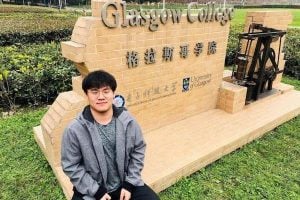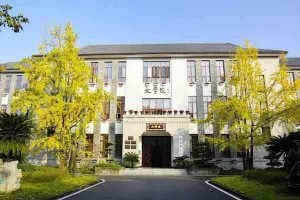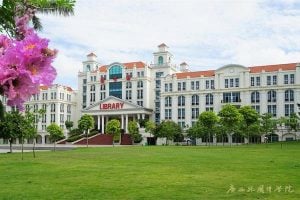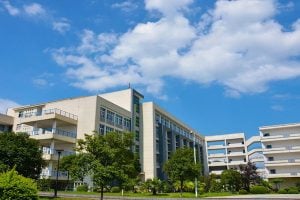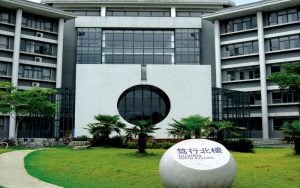
Dalian University of Foreign Languages
![]()
Introduction to Dalian University of Foreign Languages
Dalian University of Foreign Languages (website) is located in Dalian, Liaoning Province. It is a provincial university in Liaoning Province and the only public foreign language university in Northeast China. The school was established in 1964 under the cordial care of Premier Zhou Enlai. It was named Dalian Japanese College. In 1970, it was renamed Liaoning Foreign Language College. In 1974, it opened undergraduate education. In 1978, it was renamed Dalian Foreign Languages College. In 2013, it was renamed Dalian Foreign Studies University. At present, it has developed into a multi-disciplinary foreign language university with a focus on foreign languages, featuring international education, and a discipline of literature, economics, management, engineering, law, and art. In 2016, he was selected as one of the key universities in Liaoning Province, and the foreign language and literature subject was selected as the “first-class discipline” in Liaoning Province.
The school has two campuses, Lushun Campus and Zhongshan Campus. It covers an area of 1,261,500 square meters, with a construction area of 473,100 square meters. It has a teaching and research and auxiliary room of 158,500 square meters. The library has a collection of 1.696 million paper books and paper. There are 794 kinds of periodicals and 1.01 million e-books. The total value of teaching and research equipment is 96.132 million yuan, and the total value of information technology equipment is 69.589 million yuan.
There are 21 teaching units under the school, and there is one doctoral training program for “high-end talents in foreign affairs in Northeast Asia” serving the special needs of the country. There are 2 first-level master’s programs and 17 second-level subjects in foreign languages and literature and Chinese language and literature. Master’s degree and 5 professional degree master’s degree. Among them, foreign language and literature is the first-class discipline in Liaoning Province, and Russian language and literature, English language and literature, Japanese language and literature, and Spanish language and literature are the key disciplines of Liaoning Province. The school offers 38 undergraduate majors covering 14 foreign languages. Among them, there are 4 national specialties, 3 undergraduate specialties in Liaoning Province, 5 undergraduate demonstration majors in Liaoning Province, 4 undergraduate comprehensive reform pilot projects in Liaoning Province, and Liaoning International Undergraduate Curriculum System International Pilot Program 2 In Liaoning Province, there are two general undergraduate institutions of higher learning to apply for model transformation, and one pilot program for innovation and entrepreneurship education reform in Liaoning Province.
At present, there are 14,282 full-time students in the school. There are 1,017 faculty members in the school, including 649 full-time teachers and 65 foreign teachers. There are 1 national-level teaching teacher, 1 national “10,000-person plan” teaching teacher, 10 provincial-level teaching teachers, 7 State Council special allowance winners, and 7 members of the Foreign Languages and Literatures Teaching Guidance Committee of the Ministry of Education. 3 provincial-level outstanding experts, 2 special professors in Liaoning Province, 1 climbing scholar in Liaoning Province, 7 provincial-level outstanding teachers, 2 provincial-level young and middle-aged academic leaders, 4 provincial-level professional leaders, and provincial-level outstanding backbones. There are 20 teachers and 43 provincial-level talent projects. The school has 8 doctoral tutors, 185 master tutors, 88 professors, 217 associate professors, and 596 masters and above.
In recent years, the school education and teaching reform has achieved remarkable results. Received 2 national teaching achievement awards, 45 provincial teaching achievement awards, 14 provincial-level quality courses, 2 national-level quality resource sharing courses, 5 provincial-level quality resources sharing courses, and 1 provincial-level boutique video open class. . He was awarded one national teaching team, one national yellow-year-old teacher team and five provincial teaching teams.
The school has achieved fruitful results. The Comparative Culture Research Base is the key research base of the Humanities and Social Sciences of the Liaoning Provincial Department of Education, and the Simultaneous Interpretation Laboratory is the key laboratory of Liaoning Province. The school has 15 research institutions, including 7 research centers registered with the Ministry of Education. Since 2012, nearly 400 provincial-level scientific research projects have been approved, including one major national social science fund project. He has published more than 400 academic papers in core journals and above, and 32 textbooks have been approved for national and provincial planning textbooks for the “Twelfth Five-Year Plan” of higher education. Nearly 300 academic achievements have been awarded research awards at the municipal level or above. The School’s “Foreign Language and Foreign Language Teaching” was selected into the top 100 national liberal arts journals, and was also selected into CSSCI and Peking University core journals.
In recent years, more than 500 students have won awards in various professional competitions in the country, provinces and cities. School volunteers are active at major international events such as the Olympics, Paralympics, Summer Davos, and the Asia-Europe Meeting of Economic Ministers. In recent years, the annual employment rate of graduates has been above 95%. Since the establishment of the school, more than 100 graduates have entered the work of the Ministry of Foreign Affairs.
The university’s internationalized school features are distinctive. It has established friendly cooperation and exchanges with 223 universities and institutions in 34 countries and regions. The school has many international platforms such as the Confucius Institute, the Sino-Russian University Exchange Base, the Russian Center, the Chairman of the Chinese Principal Committee of Shanghe University, and the Innovation Experimental Zone of the International Foreign Language Talent Training Model of Liaoning Province. Under the exchange of study abroad, undergraduate double degree, master’s degree, master’s degree, multilingual communication, international training and other training modes, it will jointly train undergraduate, master’s and doctoral students with well-known foreign universities, and send nearly 1,000 students each year. Students go to foreign friendly colleges to study and participate in practical projects. The school relies on nearly 10 national public projects to send more than 150 students to study abroad each year. Up to now, the school has established 10 Confucius Institutes. Since 2015, 5,125 international students from nearly 60 countries including Russia, Japan, Korea, Australia and New Zealand have been invited to study.
![]() Campus Video
Campus Video
Welcome to Dalian University of Foreign Languages
![]() Campus VR
Campus VR
![]()
Teaching Program






